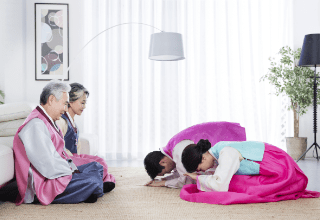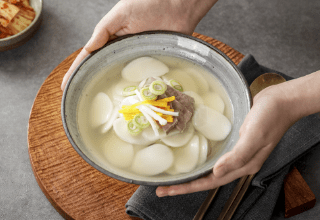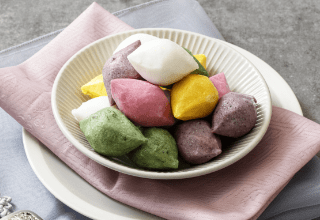-
01Introduction to the Republic of Korea
-
02Multicultural Families and Foreigner Support Services
-
03Residence and Naturalization
-
04Korean Culture and Life
-
05Pregnancy and Childbirth
-
06Education of Children
-
07Health and Healthcare
-
08Social Security System
-
09Employment and Labor
-
10References
-
Chapter Introduction Video
-
FAQ
-
Status of family centers
-
Current Status of Danuri Helpline
-
Migrant Background Youth Support Foundation
-
Current Status of Saeil Center (New Job Center for Women)
-
Immigration Offices
-
Major Tourist Destinations by Region
-
Contact Numbers for Key Foreign Embassies and Consulates in Korea
-
Guide to Personal Information Protection
-
Danuri Call Center : 1577-1366
가족상담전화 : 1644-6621
21F, 173, Toegye-ro, Jung-gu, Seoul (Chungmuro 3-ga, Namsan Square Building)
Copyright ⓒ KOREA INSTITUTE FOR HEALTHY FAMILY. All Rights Reserved
Dim
Festivals and Holidays
- Home
- Introduction to the Republic of Korea
- Festivals and Holidays
Festivals and Holidays
01Festivals
There are a variety of festivals and seasonal events in Korea.
The Korean calendar uses both solar and lunar dates. Festivals usually follow the lunar calendar.
- < Sebae (New Year's bow) >

- < Rice cake soup >

- < Songpyeon (Special rice cake) >

Seollal (Lunar New Year)
- Meaning: First day of the lunar new year
- Food: Rice cake soup, dumplings
- Characteristics: Wearing new clothes (seolbim), giving a new year's greetings to your elders, visiting ancestral graves, and playing a game of yut
- Seollal and the days immediately before and after Seollal (December 31, January 1, and January 2 on the lunar calendar) are public holidays.
Chuseok (August 15 on the Lunar Calendar)
- Meaning: Harvest festival
- Food: The year's new crops and fruits and Songpyeon
- Characteristics: Ancestor memorial services, visiting ancestral graves, viewing the full moon, and enjoying a Korean circle dance
- Chuseok and the days immediately before and after Chuseok (August 14, August 15, and August 16 on the lunar calendar) are public holidays
02Holidays
- January 1st :
- First day of the solar new year.
- Samil-jeol (Samil Independence Movement Day, March 1) :
- On this day in 1919, there was a nation-wide independence movement to protest Japanese colonial rule.
- Seokga Tansil-il (Buddha's Birthday, April 8 on the lunar calendar) :
- This is the day on which Koreans celebrate the birth of Buddha.
- Eorini-nal (Children's Day, May 5) :
- This is a day that celebrates the joy of children and promotes child welfare.
- Hyeonchung-il (Memorial Day, June 6) :
- This is a day for honoring national heroes, including those who died during the Korean War.
- Gwangbok-jeol (Independence Day, August 15) :
- On this day in 1945, Korea was liberated from under Japanese colonial rule.
- < Paying respects at the cemetery on the Memorial Day >

- Gaecheon-jeol (National Foundation Day, October 3) :
- This is the day on which the Korean nation was founded. In Korean, Gaecheon-jeol means "the day on which the sky opened."
- Hangeul Day (October 9) :
- This holiday celebrates the proclamation of Hangeul (the Korean Alphabet) by King Sejong and promotes the research and spread of Hangeul.
- Seongtan-jeol (Christmas, December 25) :
- The birth date of Jesus Christ.
- Sunday
- Temporary holiday :
- Dates designated by the government for elections or other reasons such as public holidays falling on Sundays.
- < Statue of King Sejong, the inventor of Hangeul (Korean Alphabet) >


This work can be used according to the “KOGL (Korea Open Government License) Type 4: Source Indication+Prohibition of Commercial Use+Prohibition of Change” condition.
Dim
Dim
딤영역
공유하기
딤영역
딤영역
 다운로드 중 입니다
다운로드 중 입니다



